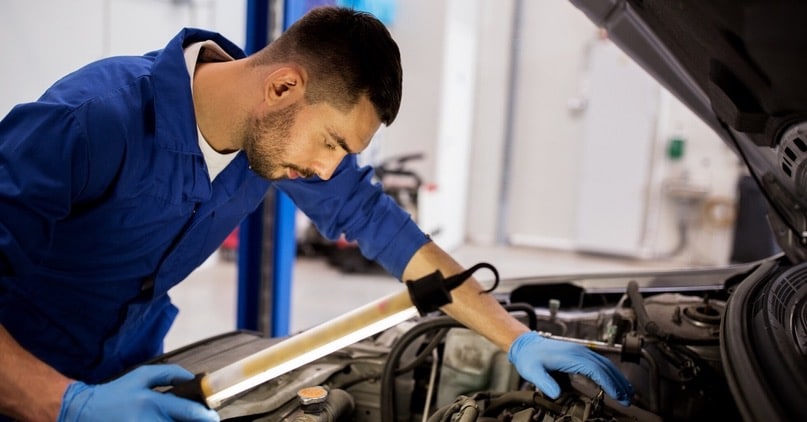All Categories
Featured
Regular engine tune-ups are essential for maintaining your automobile's performance, enhancing gas effectiveness, and expanding its life-span. Whether you're a seasoned automobile owner or a newbie, understanding the crucial elements of an engine tune-up can aid you maintain your automobile running smoothly for many years. Here are some vital suggestions to lead you with the process.
- Adjustment the Flicker Plugs. Stimulate plugs are small yet magnificent parts that play an important role in firing up the fuel-air blend in your engine. With time, they can wear or come to be fouled, leading to bad engine efficiency, reduced fuel performance, and difficult beginnings.
Throughout a tune-up, inspect your ignition system for wear and change them as required. For many vehicles, trigger plugs should be changed every 30,000 to 100,000 miles, depending upon the kind and material. Fresh stimulate plugs make sure effective combustion and smoother engine procedure.
- Examine and Change the Air Filter. The air filter is your engine's first line of protection versus dust, debris, and various other pollutants. A blocked or filthy air filter can limit air movement, causing your engine to work tougher and eat more gas.
Check your air filter throughout a tune-up and change it if it's filthy or past its recommended solution period. A tidy air filter enhances engine performance and boosts gas economy.
- Check the Fuel System. Over time, your gas system can build up dust and carbon deposits, decreasing engine efficiency and gas performance. Cleaning up the fuel injectors and fuel lines during a tune-up assists keep proper gas shipment and burning.
You can make use of a gas system cleaner or have a professional mechanic perform a much more detailed cleansing. This step is particularly valuable for older lorries or automobiles frequently driven in stop-and-go traffic.
- Inspect the Belts and Pipes. Belts and hoses are vital for numerous engine functions, such as running the alternator, water pump, and air conditioning. Throughout a tune-up, check for fractures, fraying, or indications of wear on these parts.
Change any type of damaged belts and pipes to avoid prospective failures. A busted belt or dripping pipe can lead to engine overheating or loss of power, so addressing these problems quickly is crucial.
- Replace the Engine Oil and Oil Filter. Engine oil is crucial for lubing moving components, lowering friction, and managing engine temperature. Over time, oil becomes polluted and sheds its efficiency.
As component of a tune-up, replace the engine oil and oil filter. Use the type of oil recommended by your automobile's producer and stay with the suggested modification periods. Tidy oil maintains your engine running efficiently and stops premature wear.
- Test the Battery and Billing System. A healthy battery is crucial for beginning your automobile and powering its electrical systems. Throughout a tune-up, check the battery's voltage and evaluate the terminals for rust. Tidy the terminals if required and ensure a secure link.
Additionally, test the alternator and billing system to guarantee your battery continues to be charged during operation. If your battery is weak or old, think about changing it to prevent unanticipated malfunctions.
- Flush and Re-fill the Coolant. The cooling system controls your engine's temperature, preventing it from overheating. Old or polluted coolant can shed its performance, causing prospective engine damages.
Throughout a tune-up, flush the old coolant and change it with a fresh blend. Additionally, examine the radiator, thermostat, and hoses for leakages or damage. Maintaining the air conditioning system in excellent problem guarantees your engine operates at the right temperature.

- Address Caution Lights and Unusual Signs And Symptoms. Modern vehicles are geared up with analysis systems that notify you to potential issues via control panel warning lights. If your check engine light or any various other cautioning indications get on, address them throughout your tune-up.
Furthermore, focus on uncommon signs such as odd noises, harsh idling, or lowered gas effectiveness. A specialist mechanic can detect and settle these problems during the tune-up procedure.
- Do Not Forget the Exhaust System. Your auto's exhaust system eliminates unsafe gases from the engine and guarantees correct discharges. Check the exhaust system for leaks, rust, or damages during a tune-up. A damaged exhaust system can influence engine efficiency and bring about environmental and safety and security concerns.
- Use High-Quality Components and Fluids. When replacing components or completing fluids throughout a tune-up, constantly select top notch items that fulfill your automobile's specs. Utilizing below average parts or inaccurate liquids can adversely influence your engine's performance and longevity.
Conclusion: Routine Tune-Ups Are Trick to Engine Health. Making the effort to tune up your engine guarantees it runs effectively, saves fuel, and reduces the danger of failures. Whether you execute these tasks yourself or count on a trusted mechanic, normal tune-ups are an investment in your car's dependability and durability. Follow these ideas, and you'll take pleasure in a smoother, more dependable ride for years to come.
Latest Posts
Uncover Reduce Expenses on Car Maintenance with Montclare Auto Repair’s Limited-Time Deals
Experience WyHy FCU – Low Rates for Members
Discover WyHy Federal Credit Union – Member-Focused Services for Your Future
More
Latest Posts
Uncover Reduce Expenses on Car Maintenance with Montclare Auto Repair’s Limited-Time Deals
Experience WyHy FCU – Low Rates for Members
Discover WyHy Federal Credit Union – Member-Focused Services for Your Future